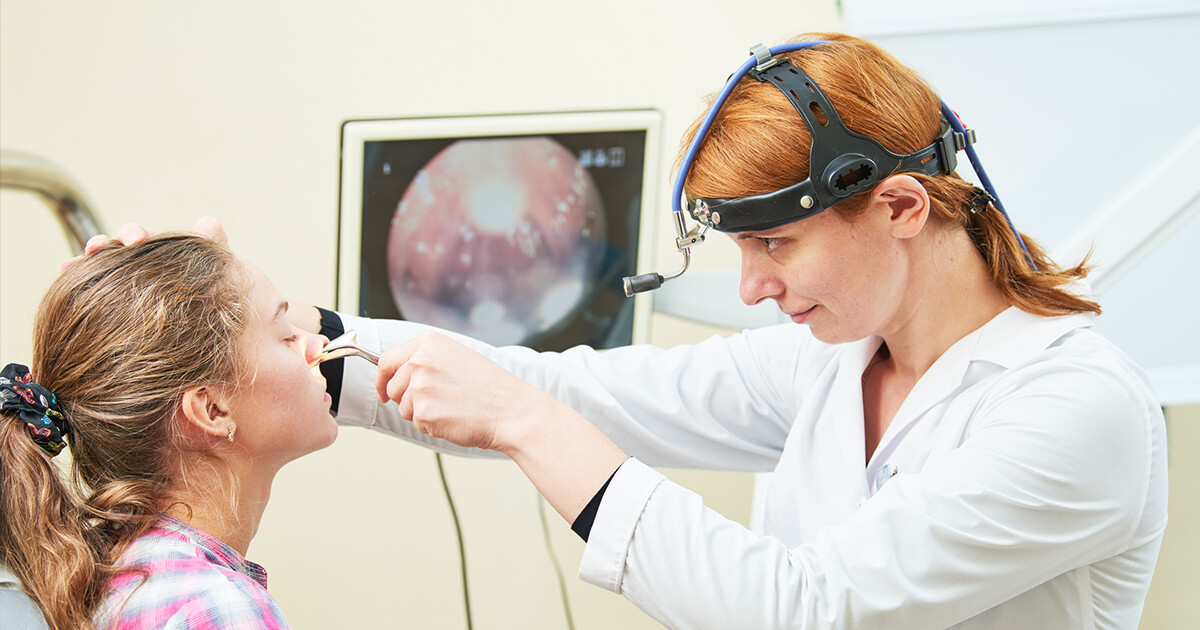Why ENT Specialists Use Cutting-Edge Diagnostics to Manage Difficult Cases
Wiki Article
Exploring the Field of Otolaryngology: What to Anticipate When You Consult an ENT
Otolaryngology, frequently described as ENT, encompasses the medical diagnosis and treatment of nose, ear, and throat disorders. For those experiencing associated problems, seeking advice from an ENT expert can supply clearness and relief. Comprehending what to anticipate during such examinations is necessary for effective communication and care. This summary will certainly lay out crucial elements of the ENT experience, including typical reasons for sees and the procedures involved in diagnosis and treatment.
Comprehending Otolaryngology: An Introduction
Otolaryngology, typically described as ENT (Throat, nose, and ear) medicine, is a customized branch of medication that concentrates on the diagnosis and therapy of conditions affecting these important locations of the body. This field encompasses a large array of conditions, including those associated to hearing, balance, respiratory feature, and speech. Otolaryngologists are educated to manage both surgical and medical treatments, using innovative methods and modern technologies. Their know-how expands past typical conditions, addressing issues such as allergies, sinus infections, and hearing loss. In addition, they play a critical function in the monitoring of head and neck cancers, giving complete treatment customized to individual person requirements. On the whole, otolaryngology continues to be essential for maintaining health and quality of life in afflicted individuals.Common Factors to See an ENT Expert
Numerous people seek the know-how of an ENT expert for a range of factors, showing the diverse nature of problems that impact the ear, throat, and nose. Usual concerns consist of persistent sinus problems, which often results in consistent nasal congestion and facial pain. Allergic reactions and their linked signs, such as itching and sneezing, additionally prompt brows through to these experts (Otorrinolaringologia). Hearing loss, whether sudden or progressive, is another substantial factor for examination. On top of that, people might seek assessment for throat problems, consisting of relentless hoarseness or ingesting troubles. Rest apnea, identified by disrupted breathing throughout rest, is regularly attended to by ENT experts also. Each of these conditions highlights the value of specialized care in managing complex ENT-related wellness problems
Preparing for Your ENT Appointment
When getting ready for an ENT appointment, it is necessary to gather pertinent information and think about any specific worries. Patients must compile a comprehensive case history, including previous ear, nose, or throat problems, surgeries, and current drugs. Documenting signs-- such as seriousness, period, and frequency-- can give valuable insights for the ENT specialist. Furthermore, individuals must prepare a checklist of concerns they desire to ask, ensuring that all problems are attended to during the check out. Bringing along any appropriate medical documents or examination results can even more aid the ENT in understanding the patient's problem. Finally, clients must confirm their consultation information, consisting of time, date, and area, to lessen any final confusion. Correct preparation can enhance the effectiveness of the examination and bring about far better end results.What to Expect Throughout the Examination
As the appointment begins, the client can anticipate to take part in a thorough discussion with the ENT professional about their signs and symptoms and medical background. The professional will certainly ask about the duration, frequency, and intensity of symptoms such as hearing loss, nasal blockage, or aching throat. Furthermore, the person's previous clinical problems, medicines, and any kind of appropriate family members history will be examined, aiding the specialist in developing a full understanding of the individual's wellness. The ENT may additionally inquire about way of living elements, such as direct exposure to irritants or toxic irritants. This open dialogue develops a foundation for the examination, ensuring that the patient's issues are addressed and setting the phase for any type of essential analyses or referrals for treatment.
Diagnostic Examinations and Treatments in Otolaryngology
A variety of diagnostic tests and treatments are vital in otolaryngology to properly review and identify problems influencing the throat, ear, and nose. Typical examinations consist of audiometry, which determines hearing feature, and tympanometry, assessing center ear stress. Nasal endoscopy allows visualization of the nasal flows and sinuses, while laryngoscopy examines the throat and singing cables. Imaging strategies, such as CT scans and MRIs, give in-depth views of head and neck frameworks. Allergy testing might likewise be performed to identify triggers for sinus or respiratory issues. These diagnostic tools make it possible for ENT professionals to establish a complete understanding of patients' conditions, ensuring tailored and efficient management strategies. Correct diagnosis is important for successful treatment results in otolaryngology.Therapy Alternatives Provided by ENT Specialists
ENT experts use a selection of treatment options tailored to deal with certain conditions impacting the ear, nose, and throat. These therapies vary from conventional approaches, such as drug and way of life modifications, to more intrusive treatments. For instance, allergies may be taken care of with antihistamines or immunotherapy, while persistent sinusitis could need nasal corticosteroids or sinus surgical treatment. For hearing loss, ENT specialists commonly recommend hearing help or surgical treatments like cochlear implants. In instances of throat problems, options can include speech therapy or procedures to remove blockages. In addition, they may provide advice for managing read more sleep apnea, including the usage of CPAP tools or surgical interventions. Overall, the objective is to improve clients' lifestyle through individualized care and effective therapy methods.When to Seek Follow-Up Treatment With an ENT
When to seek follow-up treatment with an ENT specialist is essential for taking care of ongoing signs or issues related to ear, nose, and throat problems, acknowledging. People need to think about scheduling a follow-up visit if signs and symptoms persist despite first therapy, such as persistent ear discomfort, nasal congestion, or throat pain. Adjustments in hearing, balance problems, or unusual nasal discharge may likewise call for more evaluation. Furthermore, if an individual experiences negative effects from prescribed drugs or has actually gone through a procedure, follow-up treatment is very important to monitor healing and resolve any kind of concerns. Prompt appointments can assure efficient management of problems, avoid potential difficulties, and supply assurance concerning one's health. Seeking follow-up care promotes aggressive wellness management in otolaryngology.Frequently Asked Concerns

What Certifications Should I Try to find in an ENT Professional?
When seeking an ENT professional, one need to try to find board accreditation, relevant experience, and strong individual reviews. Furthermore, effective communication abilities and a thoughtful approach can substantially boost the total therapy experience.How Do I Choose the Right ENT for My Requirements?
Picking the best ENT expert includes assessing their credentials, experience, and person testimonials (ENT). It is important to consider their interaction design and approach to therapy, ensuring they straighten with the person's details wellness needs and choicesExist Any Threats Connected With ENT Procedures?
The threats connected with ENT procedures might consist of infection, bleeding, anesthetic problems, and potential damage to surrounding frameworks. Patients must talk about these dangers with their physician to recognize private problems and warranty educated decisions.Just How Can I Take Care Of Anxiousness Before My ENT Visit?
To handle anxiety prior to a consultation, individuals can exercise deep breathing workouts, imagine favorable results, prepare inquiries ahead of time, and look for support from pals or household, fostering a sense of confidence and calmness.What Should I Do if I Experience Adverse Effects From Therapy?
If negative effects from treatment happen, the person ought to without delay report them to their medical care supplier. Changes to therapy or extra treatments may be essential to ensure security and effectiveness in handling their problem - Otolaryngology. As the consultation begins, the client can anticipate to involve in a complete conversation with the ENT professional about their signs and symptoms and clinical history. These diagnostic tools allow ENT specialists to establish a complete understanding of patients' problems, making sure tailored and reliable management plans. ENT experts supply a range of treatment options tailored to resolve details problems impacting the throat, nose, and ear. When seeking an ENT specialist, one must look for board certification, pertinent experience, and strong patient reviews. Picking the ideal ENT expert includes assessing their certifications, experience, and client evaluationsReport this wiki page